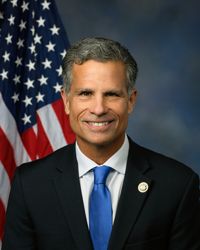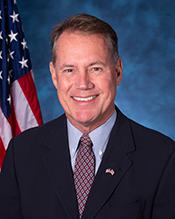0
0
0
BASIC Act
12/15/2023, 3:53 PM
Summary of Bill HR 362
The BASIC Act, also known as Bill 118 hr 362, is a piece of legislation introduced in the US Congress. The purpose of this bill is to establish a program within the Department of Education that focuses on providing financial literacy education to students in elementary and secondary schools.
The BASIC Act aims to ensure that students are equipped with the necessary knowledge and skills to make informed financial decisions throughout their lives. The program established by this bill would include curriculum development, teacher training, and resources for schools to implement financial literacy education.
Additionally, the BASIC Act seeks to promote partnerships between schools, financial institutions, and community organizations to enhance the effectiveness of financial education programs. The bill also emphasizes the importance of incorporating technology and innovative teaching methods to engage students in learning about financial literacy. Overall, the BASIC Act is designed to address the need for improved financial education in schools and to empower students to make sound financial decisions in the future. It is a bipartisan effort to support the financial well-being of young people and promote economic stability in the United States.
The BASIC Act aims to ensure that students are equipped with the necessary knowledge and skills to make informed financial decisions throughout their lives. The program established by this bill would include curriculum development, teacher training, and resources for schools to implement financial literacy education.
Additionally, the BASIC Act seeks to promote partnerships between schools, financial institutions, and community organizations to enhance the effectiveness of financial education programs. The bill also emphasizes the importance of incorporating technology and innovative teaching methods to engage students in learning about financial literacy. Overall, the BASIC Act is designed to address the need for improved financial education in schools and to empower students to make sound financial decisions in the future. It is a bipartisan effort to support the financial well-being of young people and promote economic stability in the United States.
Congressional Summary of HR 362
Budgetary Accuracy in Scoring Interest Costs Act of 2023 or the BASIC Act
This bill requires cost estimates prepared by the Congressional Budget Office or the Joint Committee on Taxation to include the costs of servicing the public debt.
Read the Full Bill
Current Status of Bill HR 362
Bill HR 362 is currently in the status of Bill Introduced since January 13, 2023. Bill HR 362 was introduced during Congress 118 and was introduced to the House on January 13, 2023. Bill HR 362's most recent activity was Referred to the Committee on Rules, and in addition to the Committee on the Budget, for a period to be subsequently determined by the Speaker, in each case for consideration of such provisions as fall within the jurisdiction of the committee concerned. as of January 13, 2023
Bipartisan Support of Bill HR 362
Total Number of Sponsors
1Democrat Sponsors
0Republican Sponsors
1Unaffiliated Sponsors
0Total Number of Cosponsors
8Democrat Cosponsors
2Republican Cosponsors
6Unaffiliated Cosponsors
0Policy Area and Potential Impact of Bill HR 362
Primary Policy Focus
Economics and Public FinancePotential Impact Areas
- Budget deficits and national debt
- Budget process
Alternate Title(s) of Bill HR 362
BASIC Act
BASIC Act
Budgetary Accuracy in Scoring Interest Costs Act of 2023
To amend the Congressional Budget Act of 1974 to provide that any estimate prepared by the Congressional Budget Office or the Joint Committee on Taxation shall include costs relating to servicing the public debt, and for other purposes.
Comments
Sponsors and Cosponsors of HR 362
Latest Bills
Providing amounts for the expenses of the Committee on Ethics in the One Hundred Nineteenth Congress.
Bill HRES 131December 12, 2025
Providing for congressional disapproval under chapter 8 of title 5, United States Code, of the rule submitted by the Bureau of Land Management relating to "Central Yukon Record of Decision and Approved Resource Management Plan".
Bill HJRES 106December 12, 2025
Expressing the sense of the House of Representatives in condemning the Government of the People's Republic of China for its harassment and efforts to intimidate American citizens and other individuals on United States soil with the goal of suppressing speech and narratives the People's Republic of China finds unwelcome.
Bill HRES 130December 12, 2025
Providing for congressional disapproval under chapter 8 of title 5, United States Code, of the rule submitted by the Bureau of Land Management relating to "North Dakota Field Office Record of Decision and Approved Resource Management Plan".
Bill HJRES 105December 12, 2025
Providing for congressional disapproval under chapter 8 of title 5, United States Code, of the rule submitted by the Bureau of Land Management relating to "Miles City Field Office Record of Decision and Approved Resource Management Plan Amendment".
Bill HJRES 104December 12, 2025
Providing amounts for the expenses of the Select Committee on the Strategic Competition Between the United States and the Chinese Communist Party in the One Hundred Nineteenth Congress.
Bill HRES 104December 12, 2025
Critical Access for Veterans Care Act
Bill S 1868December 12, 2025
OATH Act of 2025
Bill S 1665December 12, 2025
A bill to extend the authority for modifications to the Second Division Memorial in the District of Columbia.
Bill S 1353December 12, 2025
Saving Our Veterans Lives Act of 2025
Bill S 926December 12, 2025




